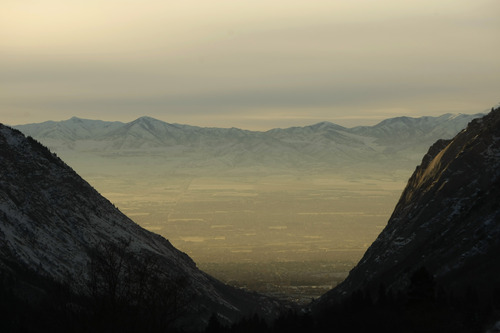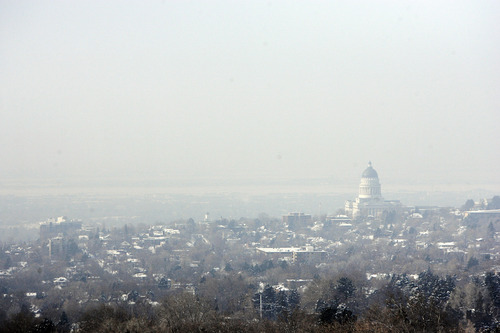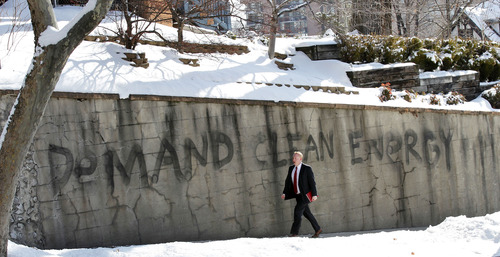This is an archived article that was published on sltrib.com in 2013, and information in the article may be outdated. It is provided only for personal research purposes and may not be reprinted.
Democrats Monday unveiled a package of six bills to tackle air pollution.
From providing transit passes during high-pollution months to making state government a model of smog-cutting strategies, the package aims at cleaning up the air in northern Utah.
"It is imperative that we, as a Legislature, act now to improve air quality," said Rep. Patrice Arent, D-Millcreek. "As I've said before, it not only affects our health, it's also affecting the health of our economy."
The bills come just six weeks into a year when northern Utah valleys have suffered pollution spikes sometimes four times above the U.S. Environmental Protection Agency's health-based standard for PM2.5 particulate pollution.
And, while geography and weather may be driving factors in the smog spikes, pollution caused by the everyday activities of Utah citizens and businesses are the only factor that can be controlled. Because of that, the Democratic bills address the day-to-day habits of workers and ordinary Utahns that contribute to the problem.
Arent, who was recently prescribed an inhaler for breathing problems during January's high-pollution episodes, said she is eager to work with the majority Republicans on solutions. Republican lawmakers haven't weighed in on the bills yet.
Utah Gov. Gary Herbert has been under fire in recent weeks over the issue. Although he has described air-quality as a top priority, thousands of Utahns have criticized his administration for failing to show more leadership on the issue. In the past two weeks, Herbert's office has fielded a letter from 100 doctors who say Herbert should declare an air-quality health emergency and a petition by nearly 8,500 citizens demanding: "Clean up our dirty air!"
"Because it is a complex problem, all options are on the table," Ally Isom, Herbert's deputy chief of staff said Monday. "The governor welcomes ideas that foster constructive dialogue around solutions that are practical, legal and meaningfully improve our air."
As for budget cuts that would affect the Department of Environmental Quality, in general — and Division of Air Quality, specifically — Arent said those agencies should be given more support so they have the funding they need to get the job done.
Erin Mendenhall, outreach coordinator for the health advocacy group Breathe Utah, said the bills equip Utahns to make lasting behavior changes to improve air quality.
"Relying on mass, voluntary change in our driving habits [as Herbert's administration suggests] won't reap the results we need," she said. "We need a cultural, driving shift" to clean up the air.
Twitter: @judyfutah —
Cleaning up the air: The Democrats' proposal
These concepts are being drafted into bills, though none of them has been numbered yet:
1. State agencies must develop plans to reduce activities that cause pollution and account for the smog-cutting changes they've already made.
2. UTA would provide free passes in January and July, the smoggiest months.
3. A special funding account would be set up to support mass-transit operations and expansion.
4. Utah law would be changed to allow the state to impose more stringent rules and regulations than the U.S. Environmental Protection Agency.
5. Industry would be required to adopt the best available control technology to scrub emissions from industrial stacks.
6. People who buy certain UTA passes would be eligible for individual income tax credits.







